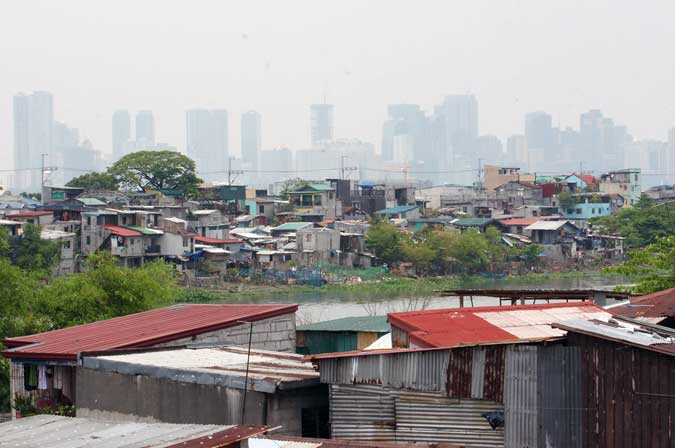PHL faces rough road to recovery as lockdown bites

Luz Wendy T. Noble and Jenina P. Ibañez, Reporters
THE Philippines faces a rough road to recovery as more restriction measures will likely be required to arrest the surge in coronavirus cases, Fitch Solutions Country Risk and Industry Research said on Monday.
This as business groups are seeking more government support as economic activity slows down due to the extension of the enhanced community quarantine (ECQ) in Metro Manila and nearby provinces until April 11.
“We expect the lockdown measures to be extended given the continued surge in cases and the prolonged impact on hospital capacity,” Fitch Solutions said in a report.
“The Philippines economy is highly vulnerable to lockdowns given its high reliance on domestic consumption and investment and thus growth will likely fall again until lockdown measures are eased,” it added.
The research unit of Fitch Ratings said it downgraded its 2021 growth projection for the Philippines to 5.8%, from the 7.6% it penciled in January. The economy shrank by a record 9.5% in 2020 due to the prolonged lockdown.
The Health department on Monday reported 8,355 new COVID-19 cases, bringing the active cases to a record 143,726.
“Our expectation for a modest recovery (i.e. real GDP not returning to its pre-pandemic levels until 2022) assumed that domestic demand would gradually recover and the government’s infrastructure plans would come to fruition, resulting in a sharp increase in domestic activity,” Fitch Solutions said.
This outlook is now clouded by the struggle to contain the surge in COVID-19 infections and the slow vaccine rollout.
“The likelihood of further outbreaks in other regions remains high and given the slow vaccination rollout in the country (less than 1% of the population has been vaccinated as of end-March), we believe the Philippines’ recovery will continue to be hampered by the pandemic,” Fitch Solutions said.
Amid the gloomier economic outlook, Fitch Solutions expects remittance inflows and recovery in external demand to be supportive of growth this year.
The central bank expects remittances to grow by 4% this year, after it slipped 0.8% to $29.903 billion in 2020 due to the pandemic. Cash remittances fuel household consumption which makes up 70% of the economy.
MORE SUPPORT
Meanwhile, Philippine Retailers Association Vice-Chairman Roberto S. Claudio in an e-mail on Sunday advocated for unhampered online selling, noting that consumers still want to buy products.
“There is just no opportunity for people to consume, except for food, medicines and essential products,” he said.
Retail stores selling nonessential goods are not allowed to operate during ECQ.
He is asking the government to allow retailers of nonessential products to continue online transactions, including online ordering, contactless payment and delivery options. Mr. Claudio last week said that he expects nonessential retailers and dine-in restaurants to have no revenue during a strict lockdown.
The retail industry group at the start of the year reported that it anticipates “soft” growth for 2021, or 10% higher than last year, when the sector suffered from sparse foot traffic amid the lockdown and increasing health anxiety among consumers. This potential sales improvement would still be around 20-30% lower than 2019 or pre-pandemic sales.
“Let’s try to help everyone do business during lockdowns. Many retailers are already breaking down with the continued lockdowns but we have no choice but to comply with medical protocols of the government,” Mr. Claudio said.
Benedicto V. Yujuico, president of the Philippine Chamber of Commerce and Industry, said that Filipino citizens should receive COVID-19 vaccines as soon as possible, noting that the government is mitigating the negative effects of the lockdown on business by allowing some sectors like essential businesses and logistics to continue operations, and improve contact tracing.
“Needless to say, the government should also expedite (and if possible increase the amount) the distribution of ‘ayuda.’ There are too many people who are unemployed and without funds to provide for their basic daily needs,” he said in an e-mail.
During the ECQ, full operations are allowed for public and private hospitals, healthcare services, manufacturers of medicine and medical supplies, agriculture and fishery, mining, outsourcing, export, and delivery and courier services transporting food, medicine and other essential goods.
An outsourcing industry group in an e-mail last week said that government agencies have extended guidance to the sector through their issuances.
“(We have) been working with various government agencies and industry stakeholders to ensure our member companies are able to continue their operations while keeping employees healthy,” Information Technology and Business Process Association of the Philippines (IBPAP) President and Chief Executive Officer Rey E. Untal said.
As for foreign investors, the European Chamber of Commerce of the Philippines (ECCP) maintained that the Philippine government should identify COVID-19 mitigation and economic reform best practices done by other countries.
“Continued enforcement of health and safety measures, intensified immunization programs, and unhampered business activities are all essential in stabilizing the current landscape. These are also important signals that the Philippines remains a viable investment destination,” ECCP President Nabil Francis said in a mobile message.
